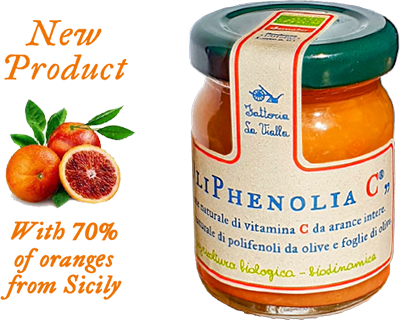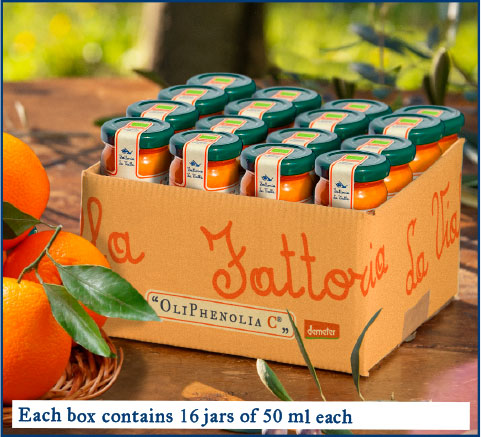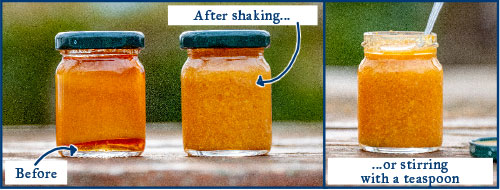

Hydroxytyrosol 56.00 mg,
verbascoside 24.00 mg, 3,4-DHPEA-EDA 47.00 mg,
p-Coumaroil secologanoside 4.00 mg, other polyphenols 369.00 mg
Vitamin C 23.10 mg
Total polyphenols 500.00 mg (= 5,000.00 mg/l)
(values for 2 jars = 100 ml - RDA)
Ingredients: Orange 70%, Uva fragola grape juice 20%, Extract of olives 10% (equivalent to approx. 600 g of fresh olives in 2 jars = 100 ml - RDA).
From organic and biodynamic agriculture.
Recommended use: take 2 jars - containing 50 ml each – daily, one in the morning and one in the evening, between meals. It is recommended to repeat an 8-day cycle at least 3 or 4 times a year.
- A valuable supplement, providing olive and olive leaf polyphenols, in particular hydroxytyrosol, which is extremely bioavailable in OliPhenolia and...
- ... for the intake of vitamin C and limonene from whole oranges.
Vitamin C contributes to:
- normal functioning of the nervous system
- normal collagen formation for the normal function of blood vessels, bones, cartilage, gums, skin and teeth
- normal energy-yielding metabolism
- normal functioning of the immune system
- the protection of cells from oxidative stress
- the reduction of tiredness and fatigue
- Vitamin C also increases iron absorption
Physiological effects recognised by EFSA (European Food Safety Authority)
- A natural source of potassium, which contributes to the normal functioning of the nervous system, normal muscle function, maintenance of normal blood pressure
- Its effectiveness is guaranteed by Fattoria La Vialla: reduction of oxidative stress to be measured after a period of consumption by means of the FORT test.

